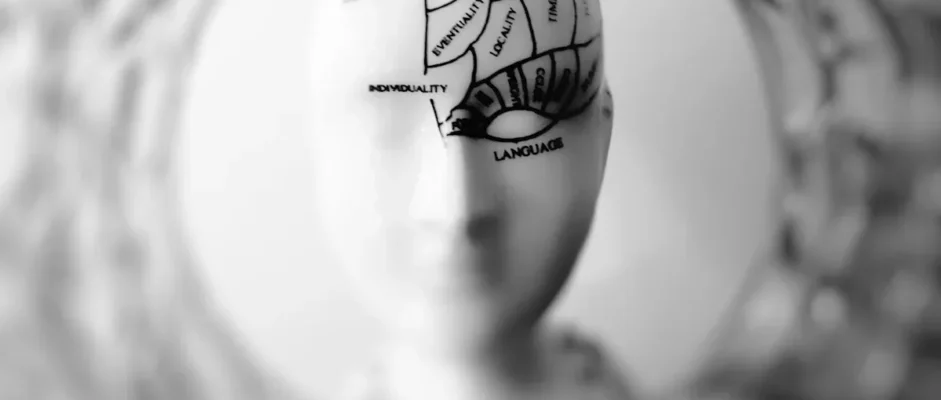Last updated on December 29th, 2025 at 10:03 am
Have you ever thought about why some people trick others with careful plans, while others want lots of attention? The answer is in knowing the difference between Machiavellianism and narcissism. Both are part of the “dark triad,” which is a group of personality traits that can make relationships hard. People with high Machiavellianism use smart and sneaky actions. People with narcissism want to be popular and get upset if someone hurts their image.
You might see these traits in people around you. Studies show people with these traits: Often have problems with friends and family. May get angry when their status is at risk. Have trouble making good choices. Learning about Machiavellianism Vs Narcissism: What’s The Difference? helps you notice these actions and keep yourself safe.
TL;DR
Machiavellianism is about controlling and tricking people. Narcissism is about wanting people to notice and admire you.
People with Machiavellian traits use sneaky ways to get what they want. Narcissists act in obvious ways to get praise.
Knowing these traits helps you spot bad behavior in others. It also helps you keep your mind healthy. Machiavellians can seem nice but do not care about others.
Narcissists act dramatic and always want attention. Both traits can hurt friendships. Machiavellians hurt by lying, and narcissists hurt by needing attention.
Trait | General Population Mean Score | Health Care Mean Score |
|---|---|---|
Narcissism | 12.0 | |
Machiavellianism | 56.6 | 53.0 |
Definitions

Machiavellianism
Machiavellianism is when someone likes to control others. People with this trait use others to get what they want. They do not care about other people’s feelings. They see people as tools to reach their goals.
Source | Definition |
|---|---|
Science Direct | Machiavellianism means using others to reach personal goals. It often includes negative thoughts about people and being good at tricking others. |
Psychology Today | Machiavellianism means being sneaky, lying, and caring only about yourself. People called “high-Machs” do not feel sorry for others. They see the world as cold and only care about power and status. They will do anything to win. |
Traits
Very good at tricking people
Do not feel sorry for others
Think the world is unfair
Only care about themselves
Do not show feelings
Behaviors
Tell lies to get ahead
Use charm to get what they want
Make plans to win
Hide what they really want
Stay away from close feelings
Note: Studies say people can learn Machiavellianism by watching others. If you see people use tricks to win, you might copy them. Some research links this trait to hard times growing up.
Narcissism
Narcissism is when someone thinks they are very special. They want others to notice them. They do not care much about how others feel. The DSM-5 says Narcissistic Personality Disorder (NPD) means acting grand, needing praise, and not caring about others.
NPD is one of 10 personality disorders in the DSM-5-TR, under cluster B.
People with narcissism often:
Think they are better than others
Want praise all the time
Feel they deserve special things
Use people to get what they want
Do not care about others’ feelings
Feel jealous or think others are jealous of them
Act rude or bossy
Traits
Think they are great
Want others to admire them
Feel they should get special things
Use others for their own good
Do not care about feelings
Feel jealous
Act proud
Behaviors
Talk a lot about their wins
Always want attention
Ignore what others need
Take credit for group work
Get mad if not praised
Put others down to feel better
Tip: Narcissism can look loud or quiet. Loud narcissism is easy to see. Quiet narcissism hides behind shyness but still wants praise. Both types can hurt relationships.
When you compare Machiavellianism and Narcissism, you see both can break trust. Machiavellianism is about secret plans and control. Narcissism is about wanting praise and looking good. Knowing these differences helps you spot problems and keep yourself safe.
Machiavellianism Vs Narcissism: What’s The Difference?
When you compare Machiavellianism and narcissism, you see they affect how people act. Some people make careful plans to get what they want. Others just want everyone to look at them. Let’s look at how they are different.
Motivation
Goal-oriented vs. self-image
People with Machiavellianism care about reaching their goals. They plan ahead and use others to win. They do not care much about feelings or rules. They think winning is more important than how they get there.
Narcissists care most about how they look to others. They want people to admire them and think they are special. They try to get praise and attention right away. They may act without thinking and say they are right, even if they hurt someone.
Machiavellians:
Make long-term plans
Use smart moves to win
Break rules if it helps them
Treat people like tools
Narcissists:
Want praise right now
Do things for attention
Say their actions are good
Need others to admire them
Manipulation Style
Strategic vs. overt
Machiavellianism and narcissism also show up in how people trick others. Machiavellians use secret plans and tricks. They hide what they really want. You might not notice what they are doing until later.
Narcissists use tricks that are easy to see. They want everyone to notice them. They may brag or make themselves look better by putting others down. Their tricks are clear because they want attention.
Here is a table to help you see the difference:
Trait | Characteristics | Manipulation Style |
|---|---|---|
Machiavellianism | Strategic, hidden, for personal gain | |
Narcissism | Grandiose, entitled, needs admiration | Overt, self-enhancing, seeks attention |
Tip: If you feel confused by someone’s actions, ask if they want a secret win or just want to be liked. This can help you tell the difference.
Relationship Impact
Behind-the-scenes vs. attention-seeking
You can see the difference in how they act with others. Machiavellians work in secret. They may use charm or lies to control people. You might feel used or hurt but not know why. They make people trust each other less and can hurt friendships or teams.
Narcissists want everyone to notice them. They get upset if people do not give them enough attention. You may feel left out or put down. Sometimes, narcissists get along with others who also want attention, but this does not always make good friendships.
Machiavellians:
Use people’s weak spots
Cause hurt feelings
Make groups trust less
Make relationships less happy
Narcissists:
Switch between wanting praise and acting mean
May like being with similar people
Can mess up teamwork by needing attention
Studies show Machiavellians do not find much happiness in relationships, even with people like them. Narcissists sometimes feel better with others like them, but their need for attention still causes problems.
Note: If someone always works in secret or always wants the spotlight, you are seeing the difference between Machiavellianism and narcissism. Knowing these traits helps you stay safe and have better relationships.
Comparison Table
Side-by-Side Traits
It is easy to see how Machiavellianism and narcissism are different. Here are some common traits you might notice:
Manipulation: Both use manipulation, but Machiavellians plan for the future. Narcissists use it to get attention or praise right away.
Emotional Expression: Machiavellians do not show much emotion. They stay calm and rarely get angry. Narcissists can get upset or angry if they do not get what they want.
View of Humanity: Machiavellians often think people are selfish and do not care about right or wrong. Narcissists think they are better than others and try to explain why their actions are okay.
Trait | Machiavellianism | Narcissism |
|---|---|---|
Manipulation | Strategic, long-term | Overt, for attention |
Emotional Expression | Cold, unemotional | Can be dramatic or angry |
View of Humanity | Cynical, distrustful | Sees self as superior, justifies actions |
Empathy | Very low | Low |
Morality | Ignores rules if needed | Believes own rules are best |
If someone always plans ahead and hides feelings, they might show Machiavellianism. If someone always wants praise and gets upset fast, they might show narcissism.
Behavioral Patterns
You can see these traits in how people act every day. The table below shows how Machiavellianism and narcissism look in social life:
Pattern | Machiavellianism | Narcissism |
|---|---|---|
Motivation | Strategic, cold, and calculating | Needs admiration and to feel superior |
Manipulation | Uses others for long-term gain | Manipulates to boost ego and self-image |
Social Skills | Can be charming but distant | Seeks attention, may brag or boast |
Conflict | Avoids open fights, prefers secret moves | May argue or show anger if not admired |
Relationships | Keeps distance, avoids close bonds | Wants to be center of attention |
Machiavellians often work in secret, while narcissists want everyone to notice them.
Effects on Others
Both Machiavellianism and narcissism can change how people around them feel. Studies show these traits can affect mental health and relationships:
Behavior Type | Effect on Mental Health | Additional Notes |
|---|---|---|
Narcissism | Can lower stress, anxiety, and depression over time | May help some people feel tougher, but can still harm relationships |
Machiavellianism | Linked to more emotional distress | Does not make people tougher or more resilient |
Psychopathy | Also linked to distress, but not to mental toughness |
Behavior Type | Mental Toughness and Resilience | Notes |
|---|---|---|
Subclinical Narcissism | Linked to higher mental toughness and resilience | May help some people handle stress better |
Machiavellianism | Not linked to mental toughness or resilience |
If you spend time with someone high in Machiavellianism, you might feel confused or stressed. If you are around a narcissist, you might feel left out or put down, but sometimes they seem strong and sure of themselves.
Identifying Traits

Knowing the difference between Machiavellianism and narcissism helps you stay safe. It also helps you have better friendships. You can spot these traits by watching how people act. Look at how they treat others. Here is how you can see the signs in real life.
Machiavellian Signs
Manipulation
People with Machiavellian traits use others to get what they want. You might see these actions:
Manipulation: They may lie or cheat to get their way. Sometimes, they say nice things just to trick you. They use your weak spots against you.
Self-interest: They make choices that help themselves. They do not care much about being a good friend.
Deceit: They hide the truth or change facts to help themselves.
Unemotional: They do not show much care for your feelings. This makes it easier for them to act mean.
Ambition: They want to be on top. They use tricks to move up at school or work.
Competition: They see others as people to beat. They may help or compete, depending on what helps them win.
Tip: If someone often changes sides or keeps secrets to get ahead, they may show Machiavellian behavior.
Scheming
Machiavellians make plans that last a long time. They may act friendly but have secret reasons. For example, a classmate may help you but later use your ideas. Experts say these people notice power and change their plans fast to win.
Narcissistic Signs
Grandiosity
Narcissists think they are special and want attention. You can spot these signs in daily life:
Trait | Description |
|---|---|
They think they are better than others. They make friends just to get praise. | |
Need for Admiration | They want people to say good things about them. They get upset if ignored. |
Sense of Entitlement | They expect special treatment. They get mad if they do not get it. |
Exploitative in Relationships | They use people for their own good. They do not really care about others. |
Empathy Deficit | They do not notice or care about how others feel. |
Prone to Envy | They feel jealous of people who seem more successful. |
Arrogant and Haughty | They act like they are better than everyone. Sometimes, they hide this by acting charming. |
Note: If someone always talks about what they have done and ignores your feelings, you may see narcissistic traits.
Lack of Empathy
Narcissists do not often care about others. For example, a friend may only call when they need help. They never ask how you are. Studies show these actions lead to weak friendships and lots of fights.
Overlap
Shared behaviors
Some signs show up in both Machiavellianism and narcissism:
Both use manipulation and care about themselves first.
They have trouble keeping close friends because they lack empathy.
You may see selfish actions, like ignoring group needs or breaking rules for themselves.
Both can break social rules and not care about right or wrong.
Distinctions
Both traits can hurt friendships, but there are big differences:
Trait | Machiavellianism | Narcissism |
|---|---|---|
Motivation | Power and careful planning | Wanting praise and feeling important |
Emotional Tone | Cold and likes to plan | Loud and wants attention |
Brain Regions | Social thinking parts of the brain | Parts of the brain that feel for others |
If someone acts cold and always plans, they may show Machiavellianism. If they want praise and act like they are the best, it may be narcissism. Seeing these signs helps you make smart choices and keep yourself safe.
Myths
Misconceptions
When people talk about Machiavellianism and narcissism, there are many myths. These myths can make it hard to tell them apart. Let’s look at some common wrong ideas:
Narcissists are always evil and want to ruin lives.
Some people think all narcissists try to hurt others. But not every narcissist means to do harm. Many have trouble with self-esteem and making friends.You can’t resist a narcissist because they are always confident and attractive.
People sometimes believe narcissists are always charming and powerful. Some do act confident, but not all are like this. You can learn to set limits and keep yourself safe.All narcissists cheat.
This myth says every narcissist is unfaithful. But research shows not everyone with these traits cheats. Each person acts in their own way.Psychotherapy never works for narcissists.
Some say therapy cannot help narcissists. But studies from 2012 to 2025 show some do get better with therapy, especially if they want to change.
People also mix up Machiavellianism and narcissism. Sometimes, traits like entitlement and exploitativeness are seen as only narcissistic. But high Machiavellianism can show these too. Some narcissistic traits, like self-sufficiency, do not fit Machiavellianism. Mixing up these traits can cause problems in clinics and daily life.
If you see someone acting selfish or tricky, ask yourself: Are they using secret plans for power, or do they want attention and praise? This question helps you see the real difference between Machiavellianism vs narcissism.
Importance of Clarity
Why is it important to know the difference between Machiavellianism and narcissism? Knowing these traits helps you protect your mental health and have better friendships. Here’s how being clear helps:
Trait | Description | Impact on Mental Health |
|---|---|---|
Machiavellianism | Involves manipulation and exploitation for personal gain. | Can lead to toxic relationships and stress. |
Narcissism | Characterized by grandiosity and a need for admiration. | May result in fragile self-esteem and anxiety. |
Distinction | Understanding these differences can inform coping strategies and improve relationships. | Enhances mental well-being through awareness. |
The dark triad traits can overlap, so you need to know each one to help with mental health.
When you know the difference, you can use the right ways to cope with each trait.
You can make your friendships better by seeing these differences and acting in healthy ways.
Conclusion
Recent studies show that knowing the difference between Machiavellianism vs narcissism helps you avoid confusion and stress. You can spot warning signs, set limits, and get help if you need it. If you work with a therapist, knowing the right trait helps you get better support.
Remember, learning about these traits does not mean you should judge others. Use what you know to stay safe, care for yourself, and build strong friendships.
You now know how Machiavellianism and narcissism are different. Machiavellianism is about making secret plans and having control. Narcissism is about wanting praise and feeling important. If you see these traits, you can keep yourself safe. Here are some things you can do:
Make clear rules to stop manipulation.
Do not let their actions change your feelings.
Make good friends who you can trust.
Do not tell them private things about yourself.
Remember, you are valuable no matter how they act.
Seeing these traits helps you protect yourself and have better friendships.
Frequently Asked Questions
Can someone have both Machiavellian and narcissistic traits?
Yes, a person can show both traits. Many people have a mix of dark triad traits. This mix can make their actions harder to notice and more harmful.
How do I protect myself from someone with these traits?
Set clear rules for yourself. Listen to your feelings if you notice tricks or selfishness. Do not share too much. Make strong friendships with people who respect you.
Are Machiavellianism and narcissism mental disorders?
Narcissism can be a disorder if it fits the rules for Narcissistic Personality Disorder (NPD). Machiavellianism is not a real diagnosis, but it describes a harmful way to act.
